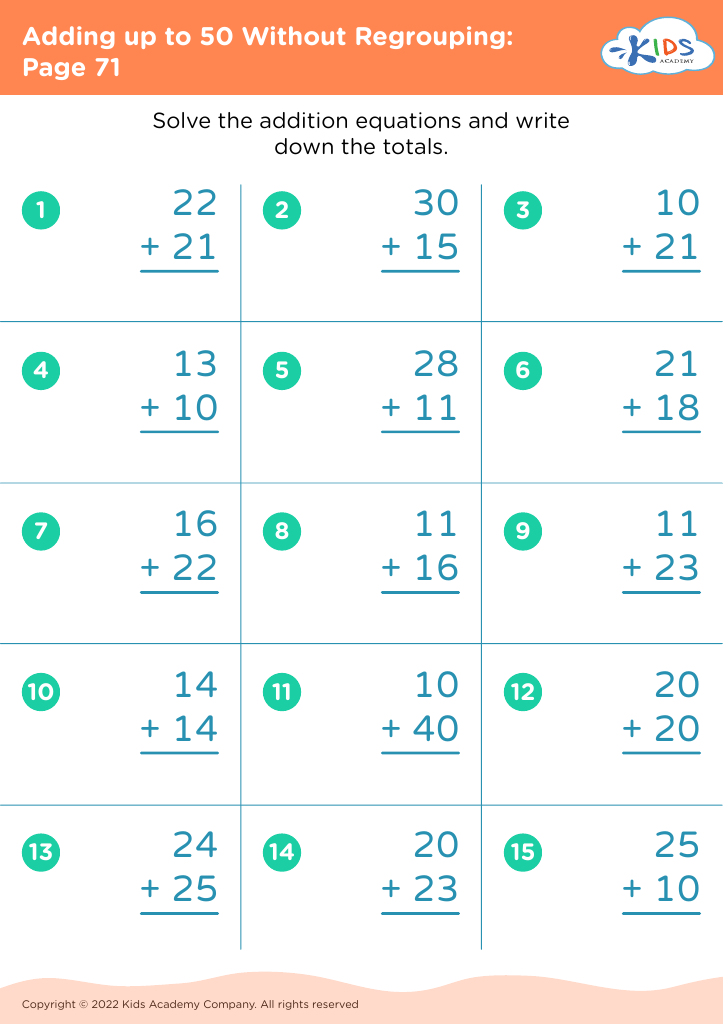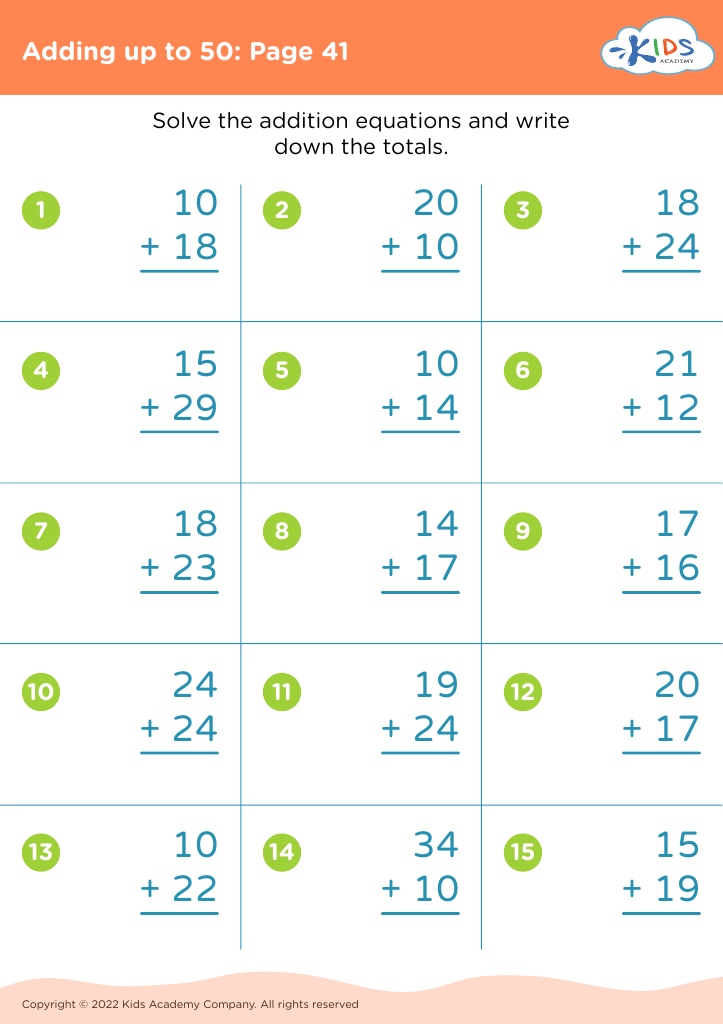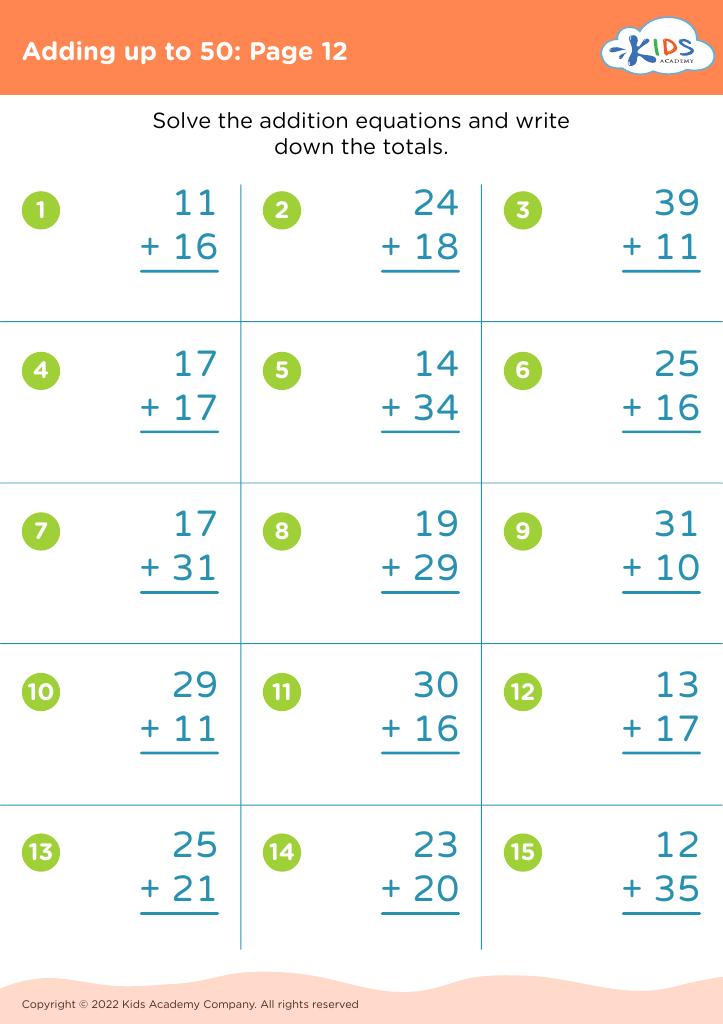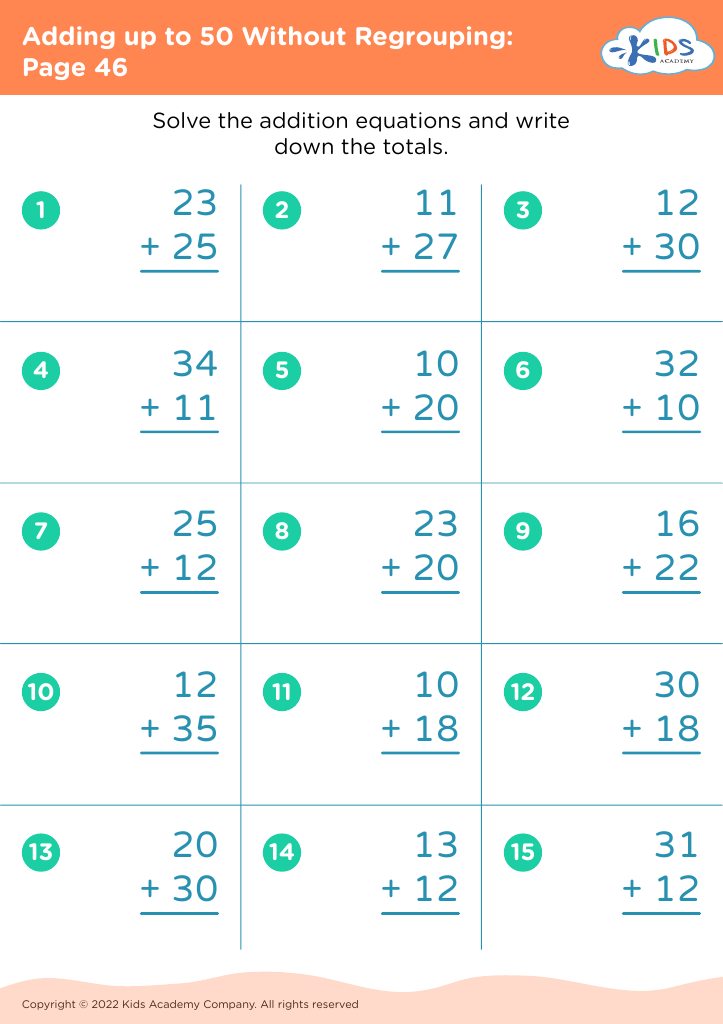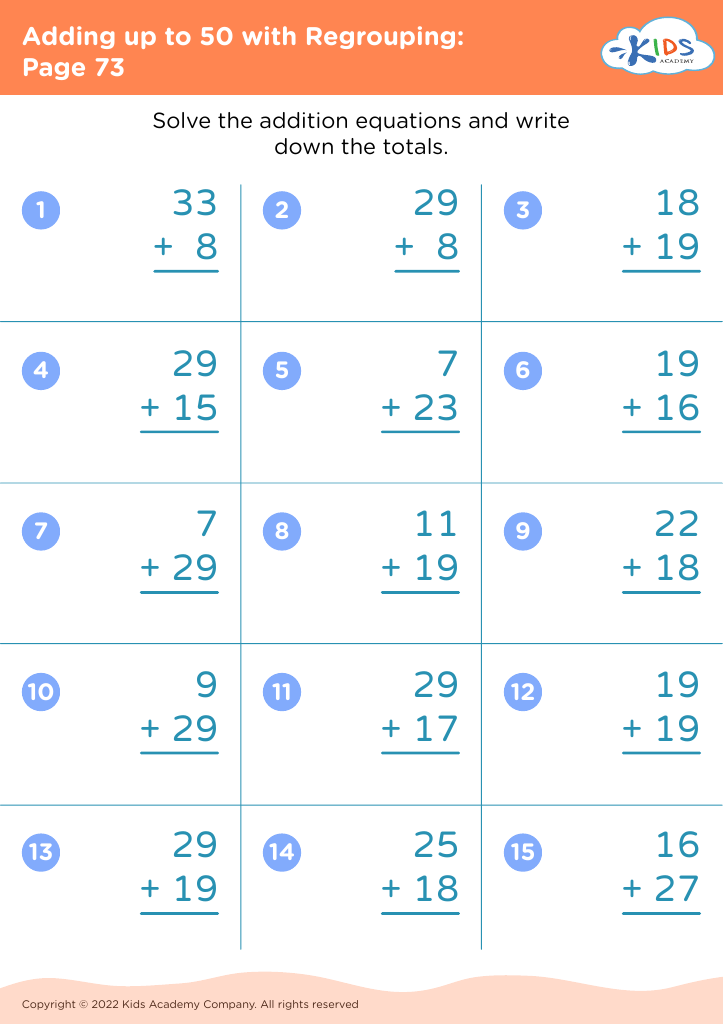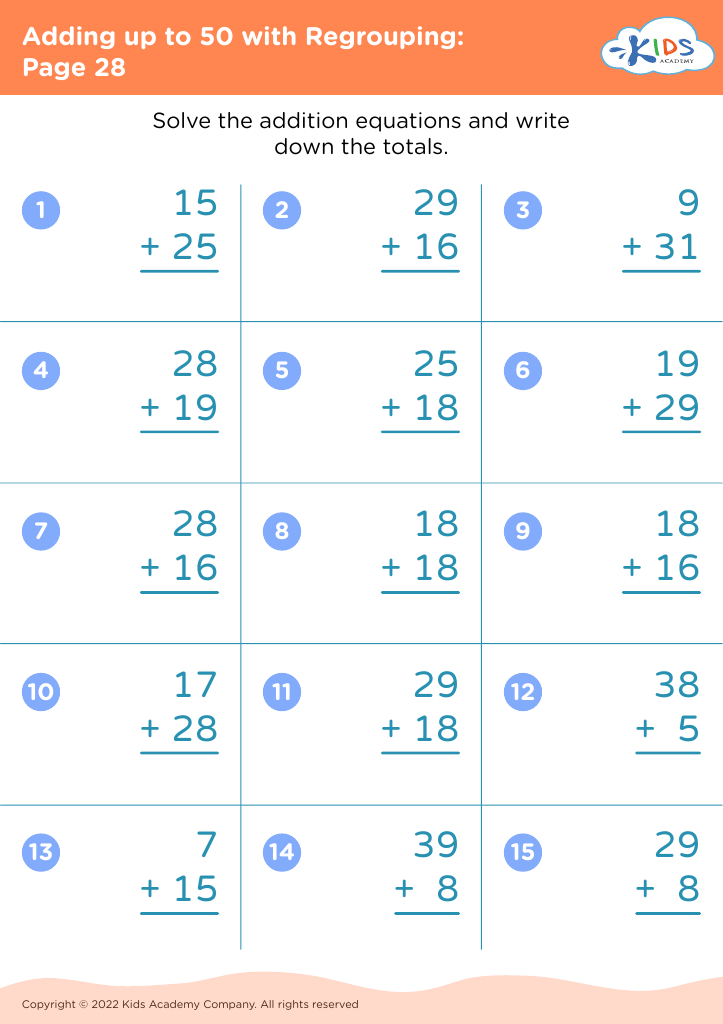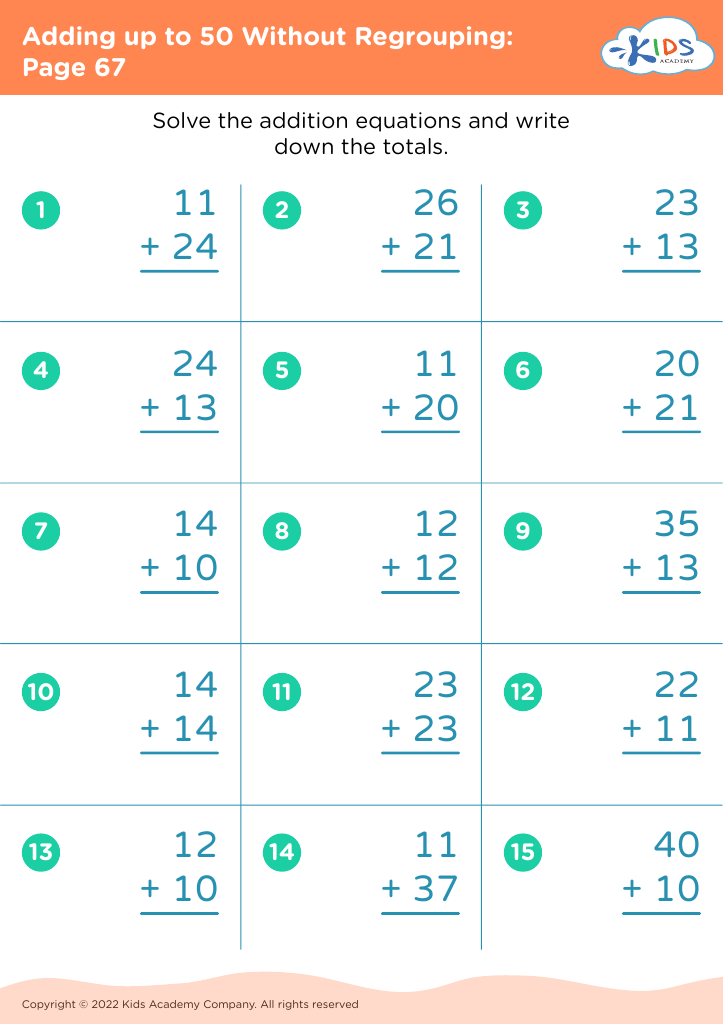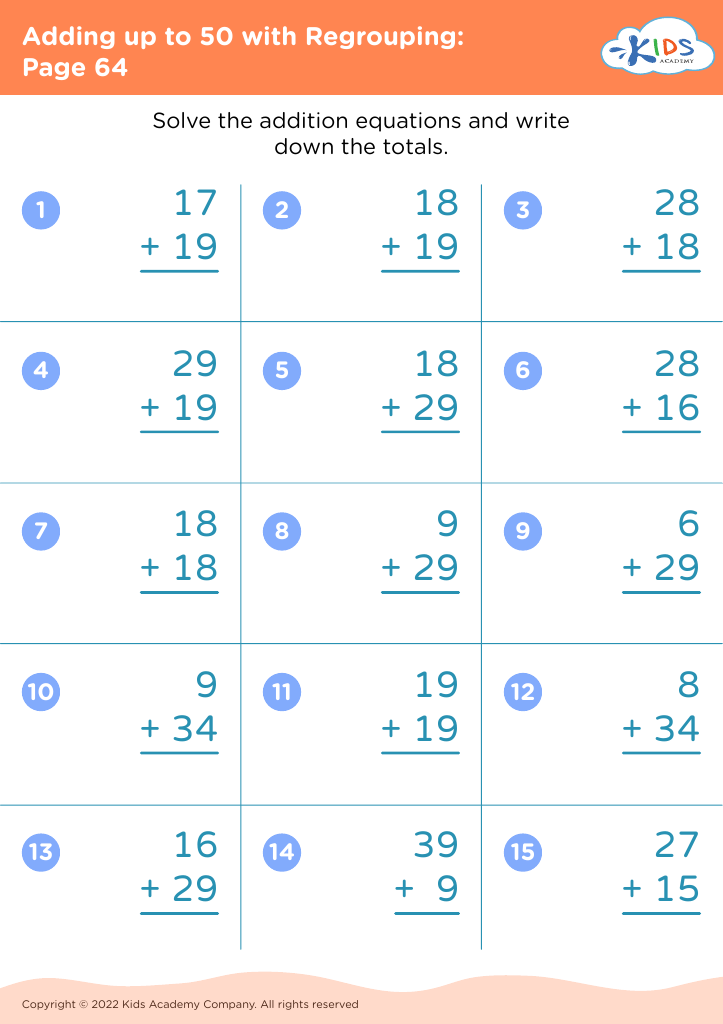Counting practice Adding up to 50 Worksheets for 8-Year-Olds
16 filtered results
-
From - To
Enhance your 8-year-old's math skills with our fun and engaging "Counting Practice: Adding Up to 50" worksheets! Designed to make learning enjoyable, these printable activities focus on reinforcing foundational math concepts through adding numbers up to 50. With a variety of exercises tailored to different learning styles, children will practice essential skills like number recognition, addition, and problem-solving. Our worksheets promote confidence and proficiency while encouraging a love for math. Perfect for classroom use or home studies, these resources provide an effective way to support your child's educational journey. Start boosting their math skills today with our interactive counting practice!
Counting practice and mastering addition up to 50 is crucial for 8-year-olds, as it lays the foundation for mathematical skills that will be essential throughout their education. At this age, children are moving from simple number recognition to performing calculations independently, which promotes confidence and enthusiasm for math.
Ensuring that students can count and add up to 50 helps improve their problem-solving skills and enhances their number sense, allowing them to understand how numbers relate to one another. This foundational skill supports not only mathematics but also subjects like science and economics in the future.
Moreover, reinforcing counting practice through engaging methods can foster critical thinking. It encourages the use of strategies such as grouping, which helps children see relationships between numbers and enhances their mental math skills.
Additionally, consistent practice can identify and address any learning gaps early on. By developing a solid grasp of addition, children are better prepared for more complex math concepts, such as multiplying and dividing. Ultimately, handlers—parents and teachers alike—should emphasize this skill to ensure children build confidence and competence, setting them up for long-term academic success.
